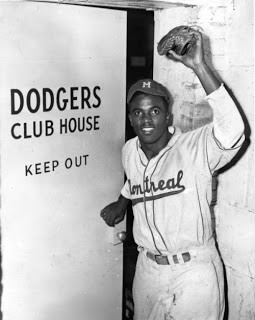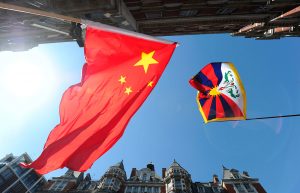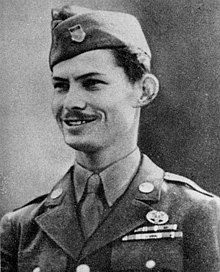"I think I can play in the big leagues. All I am asking for is the opportunity. If I fail, I'll step aside and try to so something else." - Jackie Robinson1Jackie Robinson, a man of courage, determination, and record-breaking events, was born on January 31, 1919, to a single mother who raised him along with four other siblings. This little boy grew up to change the views and opinions of African-Americans playing baseball in the Major Leagues. Jackie Robinson became the figure that would embody African-Americans competing in “a white-man’s game” and broke through that barrier of racism. Through the years growing up, Jackie competed against his older brother, Matthew Robinson, in whatever game they were playing. His older brother competed in the 1936 Berlin Olympics in the 200-meter dash, winning a silver medal just behind Jesse Owens. Matthew was the person who inspired Jackie to pursue his talents and to dream big. That is exactly what younger brother Jackie Robinson did, despite the racial controversy that lay ahead.

Jackie Robinson attended UCLA and became the first student athlete to win varsity letters in all four sports: baseball, basketball, football, and track. Unfortunately, in early 1941, just shy of graduation, Robinson left college “convinced that a college degree would not help a black man get a job during the Great Depression.”2 In the fall of 1941, Jackie moved to Honolulu, Hawaii to play football for a Semi-Professional team called the Honolulu Bears. Sadly, Robinson’s season was cut short due to his enlistment into the Army for World War II. He served in the Army from 1942 to 1944, ranking as high as 2nd Lieutenant. After being honorably discharged from the Army, Jackie Robinson’s life changed the world forever through the sport that he least excelled in, baseball.

The baseball world dealt with its own segregation views. “Segregated baseball showed the great injustice of Jim Crow, yet the Negro Leagues (the generic name for the organized black major leagues from 1920 through the 1940’s) also provided opportunities for black players, executives, and towns to thrive in unequal United States.”3 Jim Crow laws were laws that segregated facilities into white and African-American, and were common throughout the South. The game of baseball in the South only allowed White participants, players, and fans. African-American players, fans, and owners were denied and treated unjustly because of the color of their skin. “Tradition, based on deep-seated racial views of African Americans as inferior in sport, indeed, in all aspects of life, turned out to be the biggest barrier to integration.”4 Jackie Robinson broke these barriers with the help of a man named Branch Ricky.
In 1943, Branch Ricky was the president and general manager of the Brooklyn Dodgers. Ricky believed in Jackie Robinson and knew how talented he was. He wanted Robinson to be out there on the field with other Major League Baseball players, where he belonged, with the best. Branch Ricky was determined to erase the color line in baseball, and he knew Jackie Robinson would be the perfect candidate for this goal. “At the historic interview of August 28, 1945, Robinson expected to be signed to a Brown Dodgers contract but Ricky soon showed his cards. He wanted Robinson to sign with the white Dodgers and become the man who would erase the national pastime’s color line.”5 The famous dialog between Branch Ricky and Jackie Robinson started with Robinson asking Ricky a question that foreshadowed the type of player he would be in the years to come: “‘Mr. Rickey,’ asked Robinson, “do you want a ballplayer who’s not afraid to fight back?’ No, Replied the Dodgers’ president, ‘I want a ballplayer with guts enough not to fight back.’”6

A few months later, in February 1946, Robinson and his newlywed wife, Rachel Isum, his college sweetheart, traveled to Daytona Beach, Florida for the Royal’s spring training camp. “Staring down Jim Crow at Daytona Beach’s City Island Ball Park on March 17, 1946, in an exhibition between the Royals and their big league affiliate, the Dodgers, Robinson became the first black player since Moses Fleetwood Walker in 1888 to take the field against a major league team.”7 Although Robinson was known for being great at baseball, he had a slow start. During camp, when Jackie Robinson did not compete at the standard being set for him, commentators began to question his credentials and accused him of having special privileges. Without being discouraged, Robinson played the game he loved with respect and humility.
Despite how poorly Jackie Robinson was treated because of the color of his skin, he did not let other people’s opinions factor into his mindset. Teams did not want to play the Montreal Royals, because they had an African-American in the line-up. Players also tried to hurt Robinson when he was playing on the field. “In Buffalo, New York, Bison’s players spiked him as they slid into second base, knocking him out of the lineup for three weeks.”8 On April 15, 1947, playing the Boston Braves, Jackie Robinson became the first African-American to play in an official major league baseball game. The Dodgers would go on to win the National League pennant, and Jackie Robinson was named Rookie of the Year in the Major Leagues.

In the next two years, baseball began to slowly integrate; the pressure on Robinson began to ease up. Jackie Robinson went on to be known as one of the greatest baseball players of all time. He remained steadfast in his pursuit for justice and civil rights. He wrote letters to Presidents Harry S. Truman, Dwight D. Eisenhower, John F. Kennedy, and Lyndon B. Johnson thanking them for their support of civil rights. On October 24, 1972, Jackie Robinson died of a heart attack, at the age of fifty-three. His jersey number 42 was retired in 1997. In 2004, Major League Baseball proclaimed April 15th annual Jackie Robinson Day, where the players began to wear the number 42 in his honor. The tradition continues to this day.
- Thomas W. Zeiler, Jackie Robinson and Race in America: A brief history with Documents (Boston: Bedford/St. Martin’s, 2014), 80. ↵
- Thomas W. Zeiler, Jackie Robinson and Race in America: A brief history with Documents (Boston: Bedford/St. Martin’s, 2014), 3. ↵
- Thomas W. Zeiler, Jackie Robinson and Race in America: A brief history with Documents (Boston: Bedford/St. Martin’s, 2014), 6. ↵
- Thomas W. Zeiler, Jackie Robinson and Race in America: A brief history with Documents (Boston: Bedford/St. Martin’s, 2014), 9. ↵
- Thomas W. Zeiler, Jackie Robinson and Race in America: A brief history with Documents (Boston: Bedford/St. Martin’s, 2014), 17. ↵
- Thomas W. Zeiler, Jackie Robinson and Race in America: A brief history with Documents (Boston: Bedford/St. Martin’s, 2014), 17. ↵
- Thomas W. Zeiler, Jackie Robinson and Race in America: A brief history with Documents (Boston: Bedford/St. Martin’s, 2014), 20. ↵
- Thomas W. Zeiler, Jackie Robinson and Race in America: A brief history with Documents (Boston: Bedford/St. Martin’s, 2014), 21. ↵



87 comments
Suvesh Vasal
This article shed light on how important and modern Jackie Robinson was. He was a pioneer that I’m sure gave others the courage to do as he had done. He achieved so much and he deserved to have his number retired by every team. I think it is important to highlight people like him in history; those who stood up alone. Jackie Robinson is a national treasure and I hope this article informs more people of that.
Grady Purcell
Jackie Robinson’s story has always been one of my favorite ever just because he defied all odds and proved so many people wrong. You have to be a strong minded person to go through all that negativity and still be motivated to do what he did. To me he is one of the biggest heroes not only in the baseball world but also he motivated people of all races to do what he did.
Miranda Alamilla
Although many people know who Jackie Robinson was and how important his career in baseball was, I believe that it is safe to say that many people did not know about his slow start. He excelled in all of his college sports; basketball, football, track, and obviously, baseball, and it’s hard to understand why people wouldn’t let him just live out his dream and become the pro baseball player he wanted to be. Overcoming threats and racism, Robinson was able to create a real revolution in Major League Baseball.
Alexandra Cantu
I had previously had heard of Jackie Robinson and his inspirational baseball career. It was nice to read about some things I did not know like how he was an All American player and how he he enlisted in the Army after dropping out o]f college. HIs courage and persistence truly showed, he is a legend. He broke many barriers and was not gonna let anyone get in his way of a professional career. Its people like Jackie Robinson that have allowed many men of different colors and backgrounds to play together.
Brandon Martinez
Jackie Robinson is considered to be a hero to many for the way he changed baseball. Mentally Jackie had to be one of the strongest people t be able to ignore and stay civil with all the hate he was given. He inspired many people of his generation to take a stand and break barriers set within the country. Also Jackie was a really good baseball player and he had his own unique way of playing. His jersey is retired now, but not many people know about his story so this article is really good as it tells people about a legend.
Maricela Guerra
As a baseball fan I really did enjoy this story, the way that he just went and played baseball without picking any fights from anyone was really brave. It just proves that if you love what you are doing and enjoy it then nothing else ever matters. If you want to achieve your dream, then there should be no obstacle to stop you from obtaining it.
Tyler Thompson
Jackie Robinson is one of the most well known baseball players of all time. The author did an amazing job organizing and chronologically describing the most notable events of the famous baseball player. He broke many social barriers, and changed the sport of baseball as well with his record breaking steals on base, and amazing speed. Civil acts are always performed in the most uncommon ways.
Luis Morales
I have always been inspired by the story of Jackie Robinson and how with all the challenges he faced he was able to prevail and with the hearts of many American to this day. What I found interesting was the fact that Jackie had a brother, Matthew Robinson, who competed with Jesse Owens in the 1936 Olympics. I had no idea!
Monica Avila
Jackie Robinson is a household name in the world of baseball. The most interesting aspect of the article was the fact that Robinson served in WW2, which I had no knowledge of. He accomplished so much as an African American baseball player, and if it had not been for his talent and perseverance of Branch Ricky, who knows how much longer baseball would have been segregated.
Derek Esquivel
I have always loved learning about the history of baseball and where it began to start integrating people of all types into the Majors because baseball is my favorite sport. Reading what Robinson was able to accomplish in the years he was playing was just astonishing and incredible to the sport of baseball. One thing that really caught my attention was that it says in the article how Robinson was being signed by the Dodgers to play baseball despite baseball being his least sport that he excelled in. I just can’t help but wonder what he was like in the other sports that he played.